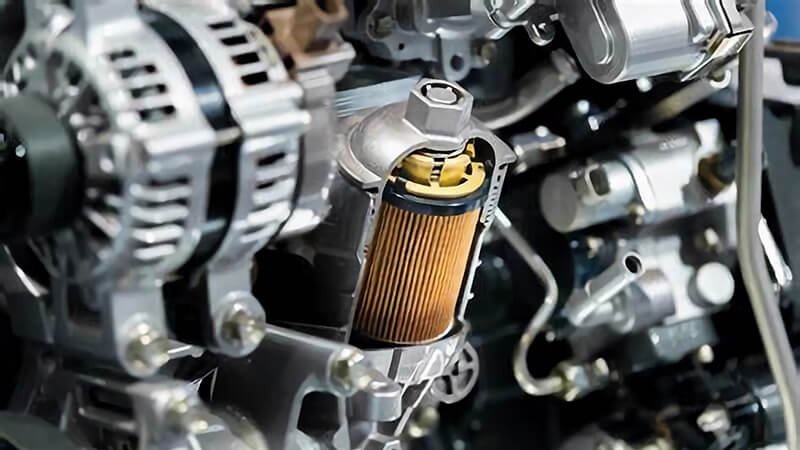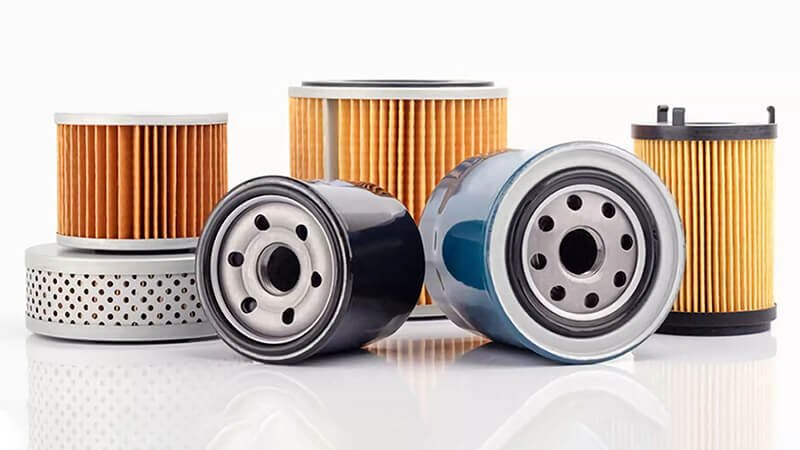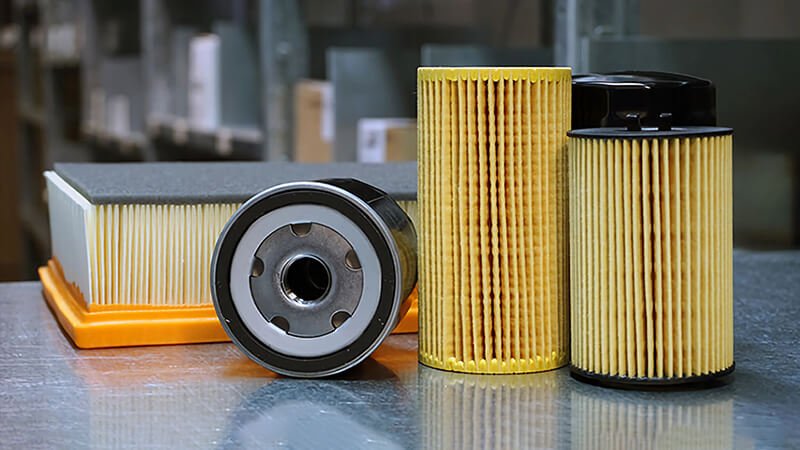Many procurement teams believe OEM oil filters are automatically better, but that’s not always true. The real difference lies in filtration precision, consistency, and certification—not just the brand printed on the box.
OEM oil filters are not always better. Verified aftermarket filters like Runex oil filters can match or exceed OEM performance when designed with high-grade materials and tested for filtration efficiency.
Some buyers still choose OEM by habit, thinking it ensures quality. Yet, when tested under equal conditions, high-end aftermarket filters often deliver equal or better protection. Let’s take a closer look at what truly defines “better.”

Is the original oil filter better than the aftermarket?
Many people assume the original filter must be superior because it carries the carmaker’s name. But in most cases, that name just represents a supply contract, not a unique design.
An OEM oil filter is not necessarily better. A premium aftermarket oil filter with certified filtration standards, like those from Runex Auto, can provide equal or even higher protection at a more reasonable cost.
Understanding what “better” really means
When I first started supplying filters, I met many clients who judged quality only by labels. One fleet manager even said, “OEM means safe.” Yet, safety depends on materials and testing—not the brand. At Runex Auto, we test every batch for micron-level efficiency and flow resistance. OEM filters may pass the minimum requirements, but not all meet tighter tolerances.
| Feature | OEM Filter | Runex Aftermarket Filter |
|---|---|---|
| Filtration Efficiency1 | Typically 95% at 30 microns | 99% at 25 microns |
| Media Type | Standard cellulose | Synthetic fiber blend |
| Pressure Resistance | 200 psi | 250 psi |
| Quality Certification | ISO/TS 16949 | ISO/TS 16949 + Internal QA |
| Cost Efficiency2 | Higher | 20–30% Lower |
The takeaway: OEM does not automatically mean higher quality. It means original supplier, not necessarily best performer. High-end aftermarket filters like Runex are engineered for durability and precision, often exceeding OEM test results.

Do you need an OEM oil filter?
Many mechanics and car owners insist on OEM parts because of warranties. They worry that using an aftermarket oil filter will void coverage.
You don’t need an OEM oil filter as long as the aftermarket filter meets or exceeds OEM specifications and certifications. Runex filters comply with ISO standards, ensuring full compatibility with warranty requirements.
Warranty myths and facts
One of my clients, a fleet operator, had recurring engine wear despite using OEM filters. We tested them and found inconsistent micron ratings and bypass valve tolerances. After switching to Runex oil filters3—each tested for flow, burst pressure, and sealing—their oil-related warranty claims dropped by over 60%.
| Concern | Myth | Fact |
|---|---|---|
| Warranty voided by non-OEM | Always true | False – as long as specs are met |
| OEM filters have unique designs | Always | Often rebranded from third-party |
| Aftermarket filters are lower quality | Common belief | Not if verified and tested |
| Certification | Optional | Required under ISO/TS 169494 |
Choosing aftermarket doesn’t mean cutting corners—it means choosing verified performance and traceable quality. Runex filters are tested using the same international standards applied to OEM manufacturers.

Is it worth paying more for a quality oil filter?
Some buyers hesitate to spend more on premium filters, assuming all filters do the same job. But filtration quality directly affects engine wear, oil life, and maintenance costs.
Paying more is worth it when the filter’s materials and test data prove consistent performance and extended service life. Runex filters combine affordability with certified quality, reducing long-term costs.
The economics of quality
The real cost of an oil filter isn’t its price—it’s the engine protection it provides. A cheap filter may save a few dollars today but cause thousands in engine repairs later. When we designed Runex oil filters5, we focused on maintaining high dirt-holding capacity6 and pressure resistance.
| Metric | Low-Cost Filter | Runex Filter |
|---|---|---|
| Filtration Consistency | ±20% | ±5% |
| Oil Flow Resistance | High | Low |
| Service Life | Short (5,000 km) | Extended (10,000–15,000 km) |
| Warranty Support | Limited | Comprehensive |
When a procurement team from Europe switched to Runex, they reported a noticeable drop in maintenance frequency. Their procurement manager told me, “We didn’t just save cost—we gained stability.” That’s what high-quality means: predictable, tested performance.

What oil filter is considered the best?
There isn’t one universal answer to this question. “Best” depends on the vehicle type, oil viscosity, and operating environment. But the top filters share common traits—high filtration efficiency, durable materials, and proven lab results.
The best oil filters combine verified micron ratings, synthetic media, and consistent pressure tolerance. Runex oil filters meet these standards and are tested for durability under extreme conditions.
What defines the best oil filter
In the lab, we test every filter for burst pressure7, filtration efficiency8, and flow stability. These tests reveal that consistent structure matters more than branding. The best filters trap fine particles without restricting oil flow.
| Key Parameter | Industry Standard | Runex Filter Result |
|---|---|---|
| Micron Efficiency | ≥95% @ 30 microns | 99% @ 25 microns |
| Burst Pressure | 200 psi | 250 psi |
| Anti-Drainback Valve | Standard rubber | High-temperature silicone |
| Compatibility | Single OEM | Multi-application certified |
In my experience, buyers who choose based on lab data—not marketing—get better results. Our customers often say they chose Runex not because of the name, but because of the reports we share. They can trace every batch, check every result, and trust every delivery. That’s how we define “the best.”

Conclusion
OEM oil filters9 aren’t automatically superior. What matters is tested efficiency, material quality, and traceable manufacturing. High-quality aftermarket options like Runex oil filters meet or exceed OEM standards, offering better cost efficiency and verified reliability. For procurement teams, the smartest choice isn’t just OEM or aftermarket—it’s certified quality you can prove.
-
Understanding Filtration Efficiency helps you choose the best filters for your vehicle, ensuring optimal performance and protection. ↩
-
Exploring Cost Efficiency can reveal how you can save money while still getting high-quality filters for your vehicle. ↩
-
Explore how Runex oil filters can enhance engine performance and reduce warranty claims. ↩
-
Learn about the significance of ISO/TS 16949 certification in ensuring quality and reliability in automotive parts. ↩
-
Discover how Runex oil filters can enhance engine protection and reduce maintenance costs, offering long-term savings and reliability for your vehicle. ↩
-
Understanding dirt-holding capacity helps you choose the right oil filter for optimal engine protection. ↩
-
Learning about burst pressure can guide you in selecting filters that withstand high pressure, ensuring durability and performance. ↩
-
Understanding filtration efficiency helps you choose the right oil filter for optimal engine protection. ↩
-
Finding the best auto oil filters from Runex Auto. ↩












